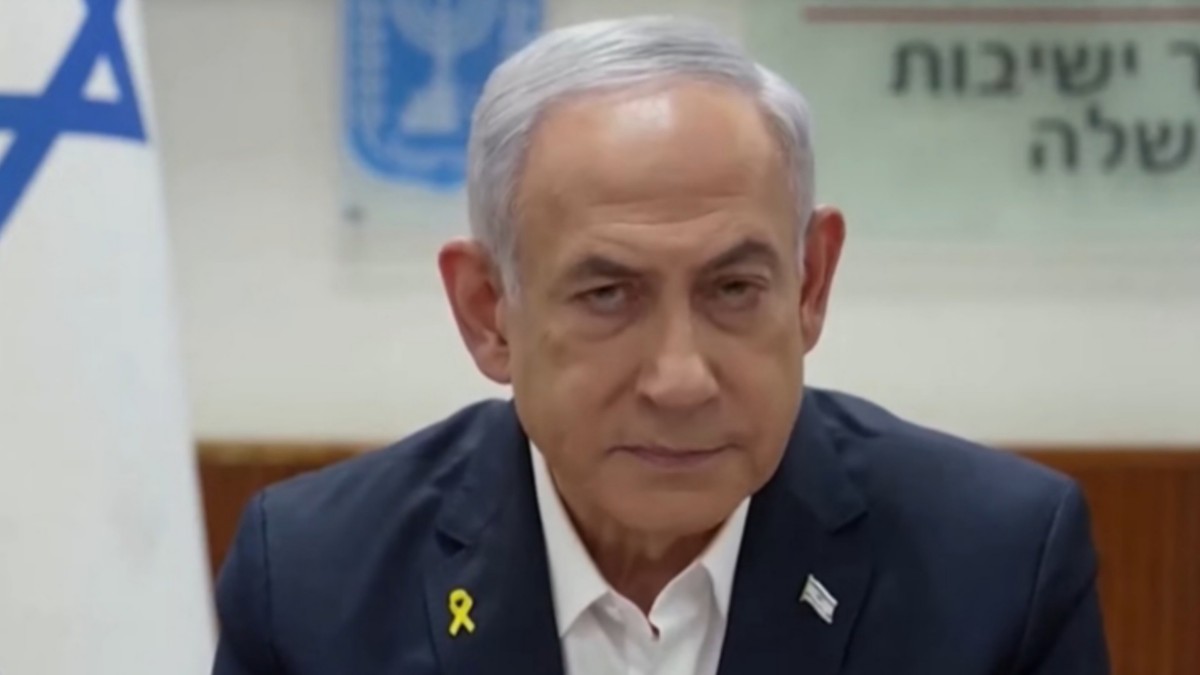
Israel Vows Response to Iran Missile Attack
2 Min Read
Israel Vows Response to Iran Missile Attack
In a significant escalation of tensions between Israel and Iran, Israeli Prime Minister Benjamin Netanyahu has vowed a strong and decisive response after Iran launched a series of ballistic missiles targeting key military and infrastructure sites in Israel. The missile strike, which occurred late Wednesday night, marks one of the most direct attacks by Iran on Israeli soil in recent years, further straining an already volatile situation in the Middle East.
The Missile Strike and Its Impact
The missile attack, which targeted areas near Tel Aviv and key military installations in southern Israel, resulted in widespread damage to infrastructure. Although the Israeli military’s advanced Iron Dome missile defense system successfully intercepted many of the incoming missiles, some reached their targets, causing significant damage. At least 12 people were injured in the strikes, though no fatalities have been reported thus far.
In a televised address, Netanyahu condemned the attack, calling it an act of aggression that would not go unanswered. "Iran has once again shown its true face—hostility and terror. This brazen attack on Israeli territory will be met with a forceful response," Netanyahu declared. "We will defend our nation, and we will hold Iran accountable for its actions."
Israel's Military Preparedness
In response to the missile strike, Israel has placed its military forces on high alert. The Israeli Defense Forces (IDF) have been mobilized in key areas, particularly along Israel’s northern borders, where concerns of further Iranian aggression remain high. Netanyahu emphasized that Israel is fully prepared to defend itself against any further escalation, stating, "Israel will not hesitate to take whatever actions are necessary to ensure the safety and security of our citizens."
According to military analysts, Israel’s response to the attack could include airstrikes targeting Iranian military positions in Syria, Lebanon, or Iraq—countries where Iran has established military bases and proxy forces. Israel has previously carried out similar operations in response to Iranian provocations, striking facilities linked to Iran’s Revolutionary Guard Corps (IRGC) and its regional allies, such as Hezbollah.
Iran's Justification for the Attack
In a statement released by Iran’s state media, Tehran justified the missile strike as retaliation for an Israeli airstrike earlier in the week that reportedly killed several Iranian military advisers in Syria. Iranian officials have accused Israel of consistently violating international laws with its military actions in Syria and Lebanon, claiming that Wednesday’s missile strike was a necessary measure of self-defense.
Brigadier General Amir Ali Hajizadeh, commander of the Islamic Revolutionary Guard Corps' Aerospace Force, claimed that the attack was a direct message to Israel, warning of further consequences if Israeli aggression continues. "This was a warning to the Zionist regime. If they continue their provocations, they will face even harsher consequences," Hajizadeh said during a press conference.
International Reactions
The missile strike and subsequent Israeli response have drawn widespread international concern, with several world leaders calling for calm to avoid a broader regional conflict. U.S. President Joe Biden expressed strong support for Israel’s right to self-defense, while urging both sides to exercise restraint to prevent further escalation. "The United States stands firmly with Israel in the face of this unprovoked attack. We urge both Israel and Iran to avoid further actions that could lead to a wider conflict," Biden said in a statement.
The European Union also called for de-escalation, with EU foreign policy chief Josep Borrell urging both sides to seek diplomatic solutions. "We are deeply concerned by the recent developments and the potential for further conflict. Dialogue and diplomacy must prevail," Borrell said in a press release.
In contrast, Iran’s regional allies, including Hezbollah and Syria, praised the missile strike, framing it as a legitimate response to Israeli aggression. Hezbollah’s leader, Hassan Nasrallah, warned that further Israeli attacks on Iran or its allies would result in a stronger retaliation. "Any Israeli action against Iran or its partners will not go unpunished. The resistance is ready to respond to any provocation," Nasrallah said during a televised speech.
Regional and Global Implications
The missile attack and Israel’s impending response have raised fears of a wider conflict in the Middle East, where tensions between Israel and Iran have been steadily increasing over the years. The two countries have engaged in numerous proxy conflicts in countries like Syria, Lebanon, and Iraq, where Iran has established strong military footholds through its support of various militias and armed groups.
Analysts believe that if the situation continues to escalate, it could lead to a broader confrontation involving regional powers and their allies, potentially drawing in countries such as Saudi Arabia, which views Iran’s influence in the region as a direct threat to its own security. "The risk of further escalation is very real," said Dr. Yossi Alpher, a Middle East security analyst. "Both Israel and Iran have deeply entrenched positions, and neither side seems willing to back down. The concern is that this could spiral into a larger conflict, with devastating consequences for the region."
The situation also has broader implications for global powers, including the United States, Russia, and China, who all have vested interests in maintaining stability in the Middle East. The U.S. and Israel share a close military alliance, with the U.S. providing significant military aid to Israel. On the other hand, Russia and Iran have been closely aligned in Syria, where both support the regime of Bashar al-Assad. Any further escalation could potentially disrupt these delicate international alliances.
Netanyahu’s Political Situation
The missile attack and Israel’s impending response also come at a time of political uncertainty for Netanyahu, who is facing challenges on the domestic front. Israel’s Prime Minister has been embroiled in a series of corruption investigations and legal battles, which have cast a shadow over his leadership.
Some analysts believe that the current crisis with Iran could bolster Netanyahu’s standing among right-wing voters, who see him as a strong leader capable of defending Israel from its enemies. "This situation allows Netanyahu to present himself as the protector of Israel, which could help him politically at a time when his leadership is under scrutiny," said Dr. Michal Shavit, a political analyst based in Tel Aviv.
Conclusion
As the situation between Israel and Iran continues to unfold, the stakes remain high. Israel’s vow to retaliate for the missile strike has set the stage for a potentially dangerous escalation in the already volatile region. While world leaders are calling for calm and urging both sides to seek diplomatic solutions, the reality on the ground suggests that further conflict may be inevitable.
With Israel’s military forces on high alert and Iran showing no signs of backing down, the coming days and weeks will be critical in determining whether this latest flare-up will lead to a wider regional conflict. For now, all eyes remain on the Middle East, as Israel prepares its next move in response to Iran’s aggressive missile strike.


